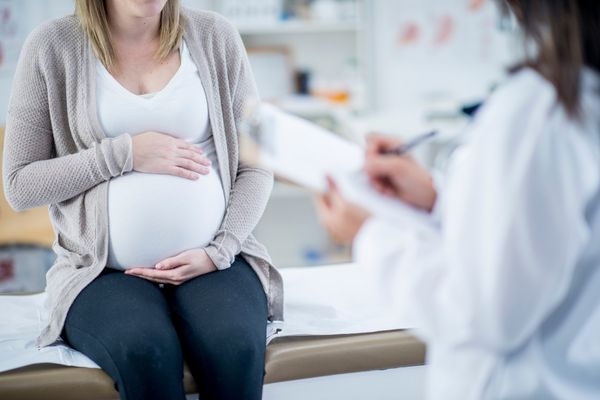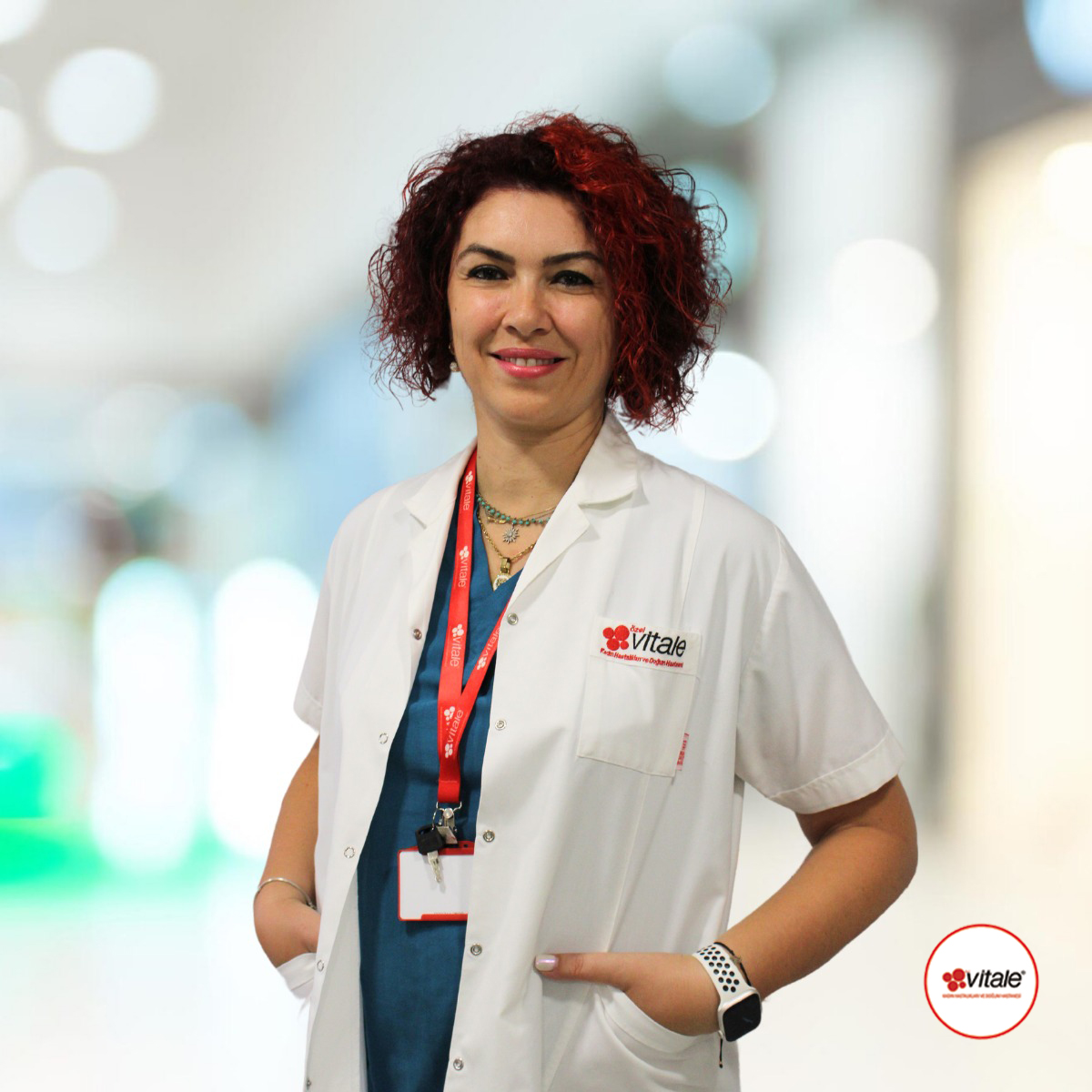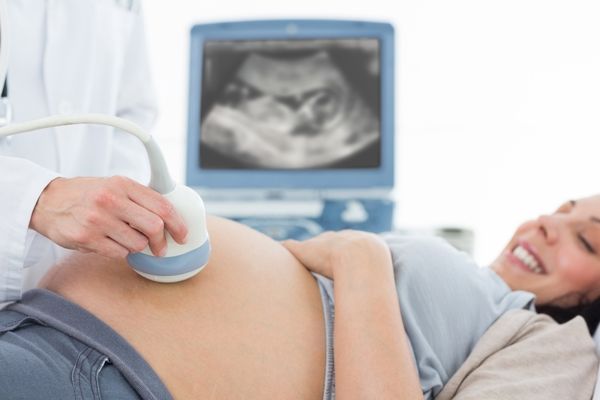High-risk Pregnancy Follow-Up
High-risk Pregnancy Follow-Up at Vitale Hospital


What is Risky Pregnancy?
A risky, or high-risk, pregnancy is one in which the health of the mother, baby, or both may be at increased risk of complications. This can be due to pre-existing health conditions in the mother (such as diabetes, high blood pressure, or autoimmune disorders), factors like advanced maternal age (35 years or older), lifestyle factors, or complications that develop during pregnancy, such as preeclampsia, gestational diabetes, or multiple pregnancies (twins, triplets, etc.).
Table of Contents
ToggleHigh-risk pregnancies require more frequent monitoring, specialized care, and potentially additional interventions to ensure the health and safety of both mother and baby throughout the pregnancy and delivery. With careful management and appropriate follow-up, many women with high-risk pregnancies go on to have healthy pregnancies and deliveries.
Who Follows a Risky Pregnancy?
A high-risk pregnancy is typically followed by a specialized team of healthcare professionals who provide comprehensive care and monitoring throughout the pregnancy. This team often includes:
- An obstetrician with expertise in high-risk pregnancies or a maternal-fetal medicine specialist oversees the pregnancy and manages any complications that may arise.
- If the mother has pre-existing health conditions, a primary care physician may collaborate with the obstetrician to ensure that these conditions, like hypertension or diabetes, are managed safely during pregnancy.
- Specialists in areas like endocrinology (for diabetes), cardiology (for heart issues), or nephrology (for kidney conditions) may be involved if the mother has specific health concerns requiring close monitoring.
- Nurses often assist with regular check-ups and health education, while dietitians provide guidance on nutritional needs, especially important for conditions like gestational diabetes.
What are the Factors That Trigger Risky Pregnancy?
Several factors can contribute to or trigger a high-risk pregnancy, including:
- Women over 35 or under 17 are at a higher risk of pregnancy complications, including genetic disorders and preterm labor.
- Conditions such as diabetes, hypertension, autoimmune diseases, and obesity increase the risk of complications during pregnancy.
- Issues like gestational diabetes, preeclampsia, or placenta previa that arise during pregnancy can elevate risk levels.
- Smoking, alcohol use, or drug use during pregnancy can negatively impact maternal and fetal health.
- Carrying more than one baby increases the risk of preterm birth, gestational diabetes, and other complications.
- A history of preterm birth, miscarriages, or complications in previous pregnancies may increase the likelihood of similar issues.
Comprehensive High-Risk Pregnancy Follow-Up in Turkey
High-risk pregnancy follow-up involves specialized care and frequent monitoring for expectant mothers facing increased pregnancy risks. In Turkey, high-risk pregnancy follow-up services are tailored to meet international standards, offering thorough assessment and proactive management for conditions that may affect either the mother or baby. Common high-risk factors include advanced maternal age, pre-existing health conditions (such as diabetes or hypertension), multiple pregnancies, or complications developed during pregnancy.
Types of High-Risk Pregnancy Services in Turkey
Regular ultrasounds, blood tests, and screenings to monitor the baby’s development and the mother’s health.
Collaboration among obstetricians, neonatologists, and other specialists to manage health risks effectively.
Ongoing support for mothers, including guidance on nutrition, lifestyle, and mental well-being.
High-Risk Pregnancy Follow-Up Process at Vitale Hospital
At Vitale Hospital, high-risk pregnancy follow-up is carefully managed through personalized plans tailored to the unique needs of each mother and baby. The process begins with an initial assessment to identify specific risks and establish a customized follow-up schedule that includes more frequent visits, specialized tests, and individualized care. With its skilled medical team, Vitale Hospital provides an integrated approach, combining advanced technology and compassionate care to ensure the health and safety of both mother and child.
In the follow-up process, Vitale Hospital offers:
Specialized Care for Common High-Risk Pregnancy Conditions
Vitale Hospital provides specialized management for a variety of high-risk pregnancy conditions, adapting follow-up strategies to best support each unique case. High-risk conditions such as gestational diabetes, hypertension, and multiple pregnancies require continuous monitoring and adjustments in care to ensure optimal outcomes. Vitale Hospital’s team of obstetricians and specialists work together to monitor these conditions closely, providing timely interventions and consistent follow-ups.
Gestational Diabetes Management
For mothers with gestational diabetes, Vitale Hospital provides regular glucose monitoring, dietary counseling, and treatment adjustments to help manage blood sugar levels. Personalized meal plans and advice on physical activity are also provided to support a healthy pregnancy.
Hypertension and Preeclampsia Care
High blood pressure during pregnancy can lead to complications such as preeclampsia, requiring close observation. Vitale Hospital’s team ensures regular blood pressure checks, medication adjustments, and quick response measures if symptoms escalate.
Multiple Pregnancy Follow-Up
For mothers carrying twins or multiples, Vitale Hospital provides specialized follow-up that includes more frequent ultrasounds and monitoring. This approach helps ensure that each baby’s growth and development is tracked closely, reducing risks associated with multiple pregnancies.
Doctors
Op. Dr. Nalan CİHANGİR
Gynecology and Obstetrics Specialist

Op. Dr. Ali Fuat ŞENGÖR
Gynecology and Obstetrics Specialist

Op. Dr. M. Taner KILIÇ
Gynecology and Obstetrics Specialist

Op. Dr. Sema MÜLAYİM
Gynecology and Obstetrics Specialist

Op. Dr. Esra ÜNAL
Gynecology and Obstetrics Specialist

Op. Dr. R. Hakan GÜRALP
Gynecology and Obstetrics Specialist

FAQ
Yes, women with pre-existing health conditions like diabetes or hypertension can often have a healthy pregnancy with proper medical management. Regular monitoring and adjustments in treatment help manage risks and support both mother and baby’s health.
Yes, maternal age over 35 is considered a risk factor, as it increases the likelihood of complications such as gestational diabetes, preeclampsia, and genetic abnormalities. However, with careful monitoring and specialized care, many women over 35 have healthy pregnancies.
Depending on the specific risks and condition, some women with high-risk pregnancies can still have a natural birth. Decisions about delivery type are made in consultation with healthcare providers, prioritizing the safety of both mother and baby.
A high-risk pregnancy is diagnosed through initial assessments that consider maternal health history, age, lifestyle factors, and any complications detected in early check-ups. Blood tests, ultrasounds, and regular follow-ups help doctors monitor and manage risks effectively.
High-risk pregnancy follow-up includes more frequent visits, specialized tests, and multidisciplinary care to monitor the health of both mother and baby. This approach allows early detection of potential complications and timely interventions to ensure a safe pregnancy and delivery.


